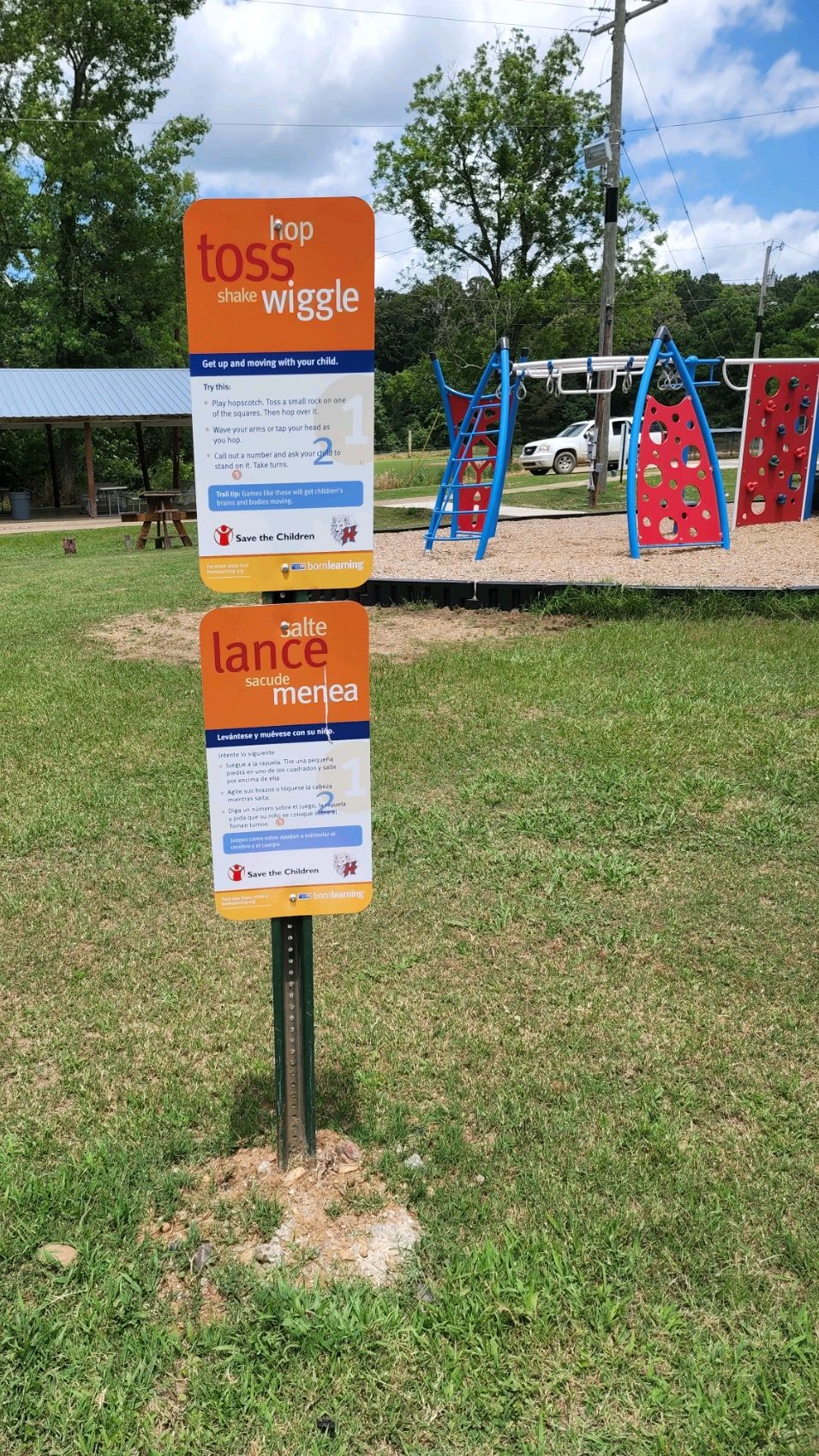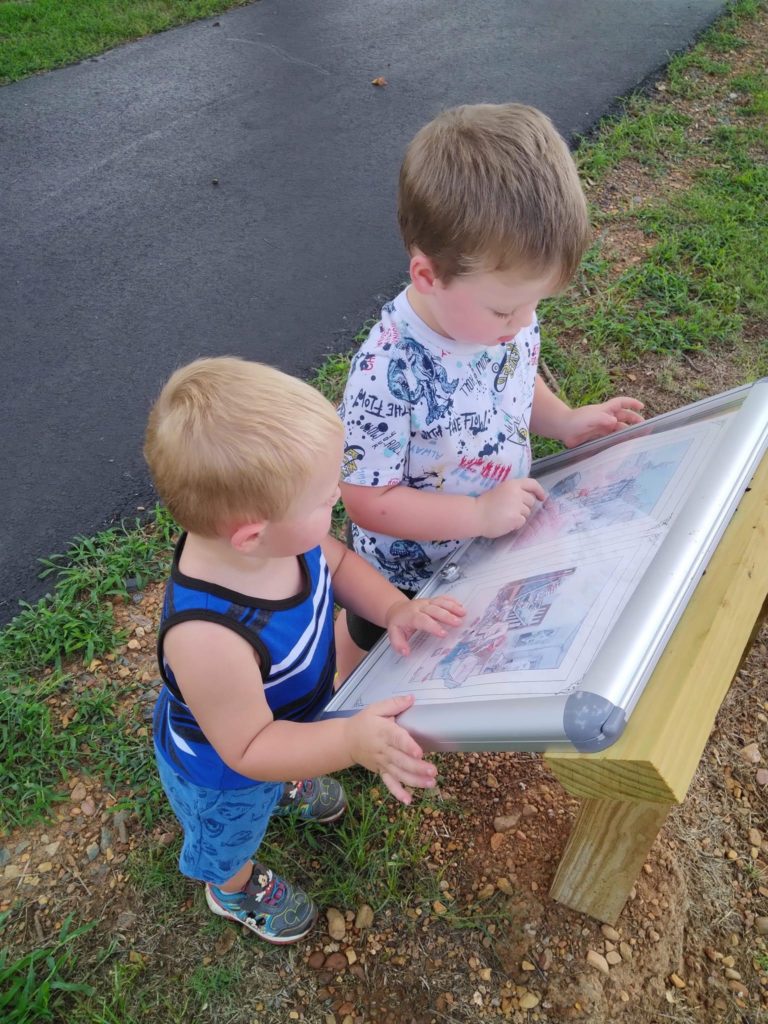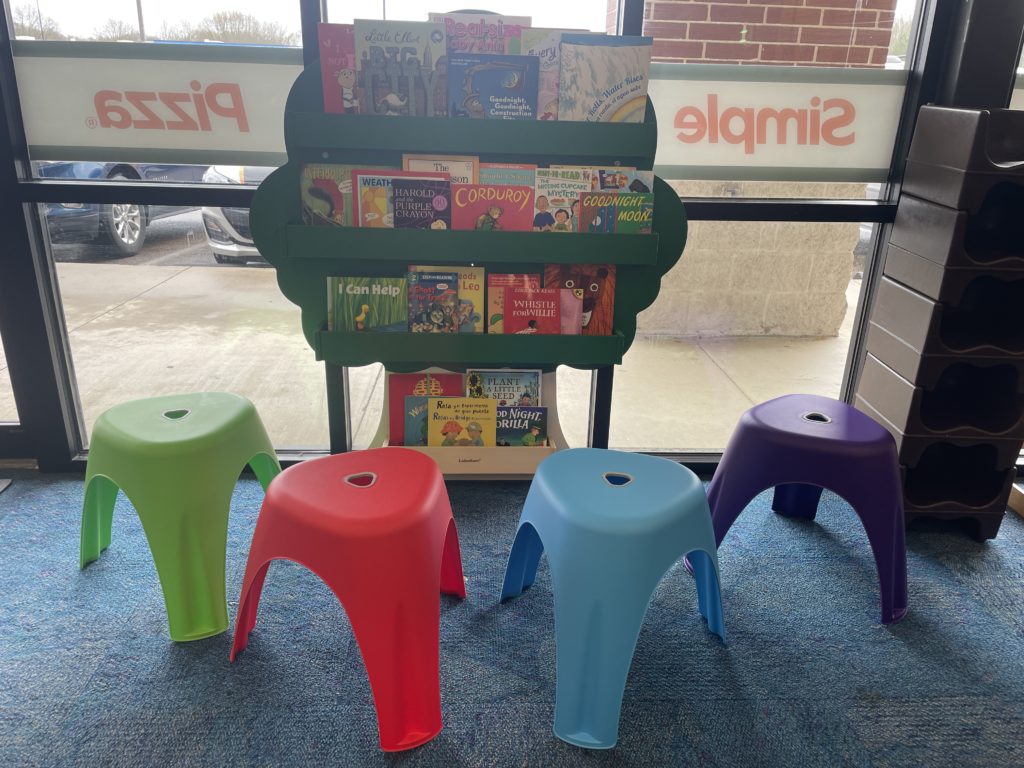In March 2019, Sevier County participated in the first round of Early Development Instrument assessments. The EDI results, combined with findings from a community input process and a child development questionnaire, showed room for improvement in the areas of physical activity, gross and fine motor skills, and overall social competence. To address these priority areas, a subcommittee based in the town of Horatio has worked to raise funds to improve area parks and recreation spaces – as well as local businesses – with a focus on early childhood development. Learn from Excel by Eight regional coordinator Beth Tody about the importance of play spaces and the progress the subcommittee has made in Horatio so far.

Improving access to parks and public spaces in Horatio was a data-informed decision based on Data Walks (a community input process), the Early Development Instrument, and the Ages and Stages Questionnaire®. What did these findings reveal?
The Data Walks were a process for getting community input on identifying the highest priorities for improving resources for young children. The priorities that came up were physical activity and nutrition. But we needed to dive into some deeper data to see what the situation was and why this was the priority.
The Ages and Stages Questionnaire revealed that children were not meeting developmental milestones in gross and fine motor skills. This struggle came from lack of access to practice these skills, not because of an innate inability to do them.
The EDI results showed room for improvement in other skills such as demonstrating helping behaviors and showing overall social competence with peers. Despite having three different data sources, we saw definite trends, which led us to think about parks as school readiness playgrounds.
Why was it important to improve parks and recreational opportunities in Horatio for children from birth to age 5?
We know that childhood obesity turns into adult obesity, which exacerbates other chronic health conditions. We know that if children aren’t physically ready for school by kindergarten, then they struggle to learn. Additionally, we heard from community members that there simply weren’t safe, free places for families with young children to play aside from joining competitive sports teams.
The EDI findings revealed some other areas, like social-emotional competence, where we could give children integrated opportunities. Parks and recreational spaces have amazing benefits for children’s physical development as well as their emotional development. That notion is what drove our project design.
We wanted our efforts to be family-centered and easily accessible for all families, regardless of home language or ability to pay.

How does access to recreation help develop not only physical health but also social-emotional health when it comes to early childhood development?
Providing a space where children can play together can help them foster early friendships with other children. It also gives them the confidence they need in their development to be successful in their relationships with friends, family, and at school.
When children are able to regulate their emotions, they are able to focus and follow directions in school-based settings.
What improvements have been made in Horatio so far, and what additional projects are underway that support kindergarten readiness through public spaces?
As a partnership with Save the Children, the subcommittee installed resources such as a “Born Learning Trail,” a StoryWalk®, busy boards for fine motor skills, book distribution shelves, bilingual signage, and more. Those resources were placed in public spaces in Horatio, including two parks and the library. The initial project grew from adding these resources to businesses wanting to be involved as well. For example, we ended up adding book trees at Main Street Kitchen and Simple Simon’s Pizza, and are looking at three more locations after business owners expressed interest in being a part of the project.
Prime Country Meat market wants to provide after-school snacks and meals, and we are exploring putting in a farmers market and a new playground to attract families to Hendrix Park. A new soccer field is also in the works. This project has been a great example of how both public and private investment in a community can lead to positive change.

To stay updated about our continued efforts to create a reliable resource grid – one in which all families and communities are plugged in to ensure that all children have what they need to thrive – sign up for our newsletter or follow us on Facebook and Twitter.
